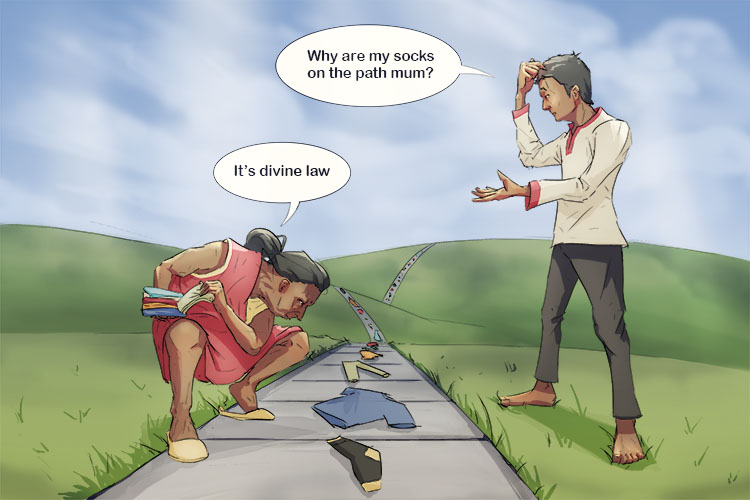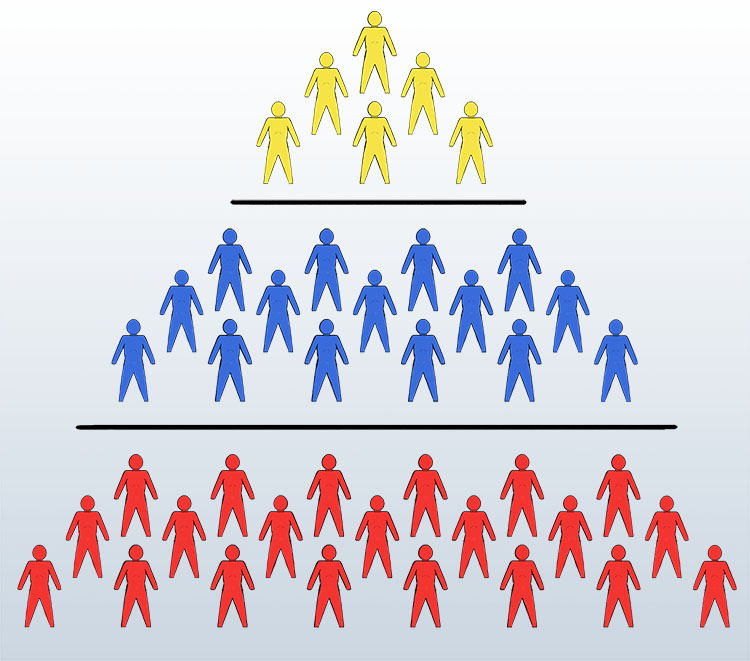Dharma – the Hindu's path in life; the moral foundations, divine law and duties of Hinduism
(Pronounced Dahr-muh)
To remember the meaning of the Hindu term Dharma, use the following mnemonic:
After Darning all the clothes, mum (Dharma) laid them all out on the path – it was a divine law of hers.

For Hindus, Dharma is the religious and moral law governing their conduct.
Some aspects of Dharma apply equally to everyone: this is Sadharana Dharma, relating to truthfulness, non-injury and generosity, among other virtues.
But there is another kind of Dharma, called Svadharma, which must be followed according to a person's class, status, and station in life.
Svadharma is the duty believed to be imposed on an individual by virtue of their birth into a particular level of society and modified according to gender and stage of life.
An individual who steps outside the role imposed on them by Svadharma is believed to be inviting bad karma, or dire consequences. Hindu texts make it clear that it is better to practise your own appointed duty deficiently than to perform another's duty well – doing the duty of others invites danger.





